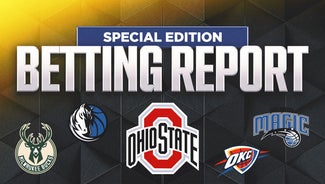NCAA Tournament success depends on strong guard play
Anyone trying to fill out their NCAA Tournament brackets ought to start by figuring out which teams have the best backcourts.
This has been a guard’s event for years.
When Kansas’ Ochai Agbaji helped the Jayhawks win the national title last season, he became the eighth straight guard to be selected as a Final Four’s most outstanding player. The list started with UConn's Shabazz Napier in 2014 and continued with Duke’s Tyus Jones, Villanova’s Ryan Arcidiacono, North Carolina’s Joel Berry II, Villanova’s Donte DiVincenzo, Virginia’s Kyle Guy and Baylor’s Jared Butler.
Occasionally a big man can dominate the college basketball landscape the way Anthony Davis did while leading Kentucky to the 2012 title, but they’re the exceptions. The NCAA Tournament generally is all about guard play.
Here’s a look at six backcourts that merit watching.
BAYLOR: L.J. Cryer, Adam Flagler and Keyonte George.
Baylor won the NCAA Tournament two years ago behind its outstanding backcourt and will try to do it again with a different set of guards. All three of them score at least 14.5 points per game. Flagler was one of five finalists for the Jerry West Award given to the nation’s top shooting guard. He also earned AP first-team all-Big 12 honors. George, the best pro prospect in the trio, was a second-team all-Big 12 pick. Baylor ranks second in Division I in adjusted offensive efficiency, a metric measured by college basketball stats guru Ken Pomeroy that essentially translates to points scored per 100 possessions when adjusted for the level of competition.
HOUSTON: Marcus Sasser and Jamal Shead.
Sasser is one of 10 semifinalists for the Naismith Award given to the national player of the year He's eager for this NCAA Tournament showcase after a foot injury ended his 2021-22 season after just 12 games. He injured his groin in the American Athletic Association Tournament and didn't play in Sunday's championship game, so it remains to be seen how close he is to full strength. Sasser has scored over 17 points per game each of the last two seasons. Shead has nearly three times as many assists as turnovers.
KANSAS: Gradey Dick, Dajuan Harris and Kevin McCullar Jr.
The defending national champions had to replace virtually their entire nucleus from last year but still put together an outstanding backcourt to complement forward Jalen Wilson, the AP Big 12 player of the year. Dick, a freshman, is a Jerry West Award finalist, scoring nearly 15 points per game; he arguably is more a small forward at 6-foot-8, but Kansas lists him as a guard. Dick and McCullar both were AP second-team all-Big 12 selections. McCullar, a Texas Tech transfer, has scored in double figures three straight seasons and is pulling down over 7 rebounds per game. Harris is dishing out over 6 assists per game and ranks third among all Division I players in assist-turnover ratio.
MARQUETTE: Kam Jones, Tyler Kolek and Stevie Mitchell.
Kolek, a Naismith Award semifinalist and the Big East player of the year, has 7.7 assists per game and has well over three times as many assists as turnovers. He was named the Big East Tournament MVP. Jones, a second-team AP all-Big East selection, leads Marquette in scoring and makes nearly three 3-pointers per game. Mitchell has over 7 points per game but is best known for his defense. This group helped Marquette win its first Big East outright regular-season title and first Big East Tournament championship.
MIAMI: Jordan Miller, Nijel Pack and Isaiah Wong.
This trio helped Miami win a share of the Atlantic Coast Conference regular-season title and earn the No. 1 seed in the ACC Tournament for the first time since 2013. Wong is a Jerry West Award finalist and AP first-team all-ACC pick. He was named ACC player of the year by a 75-member panel including coaches and media representatives. Wong, Miller and Pack are each scoring over 13 points per game.
XAVIER: Souley Boum, Colby Jones and Adam Kunkel.
This trio helped Xavier lead all Division I teams in assists per game. Boum and Jones are each averaging over 4 assists per game, while Kunkel has 3 per game. They’re also scoring about a combined 42 points per game. Boum, an AP first-team all-Big East selection, ranks second in the conference in scoring. Jones was an AP second-team all-Big East pick. ___
AP March Madness coverage: https://apnews.com/hub/march-madness and bracket: https://apnews.com/hub/ncaa-mens-bracket and https://apnews.com/hub/ap-top-25-college-basketball-poll and https://twitter.com/AP_Top25






